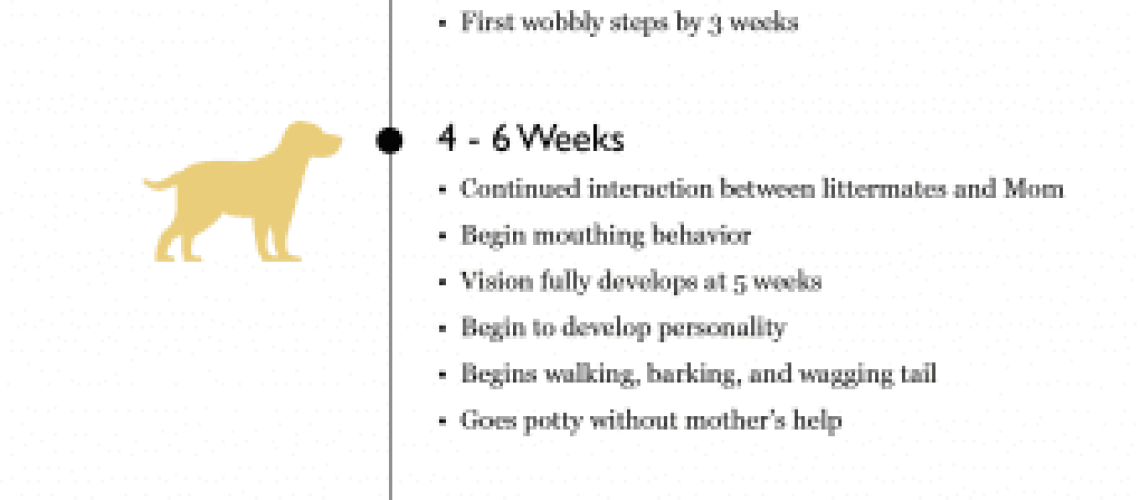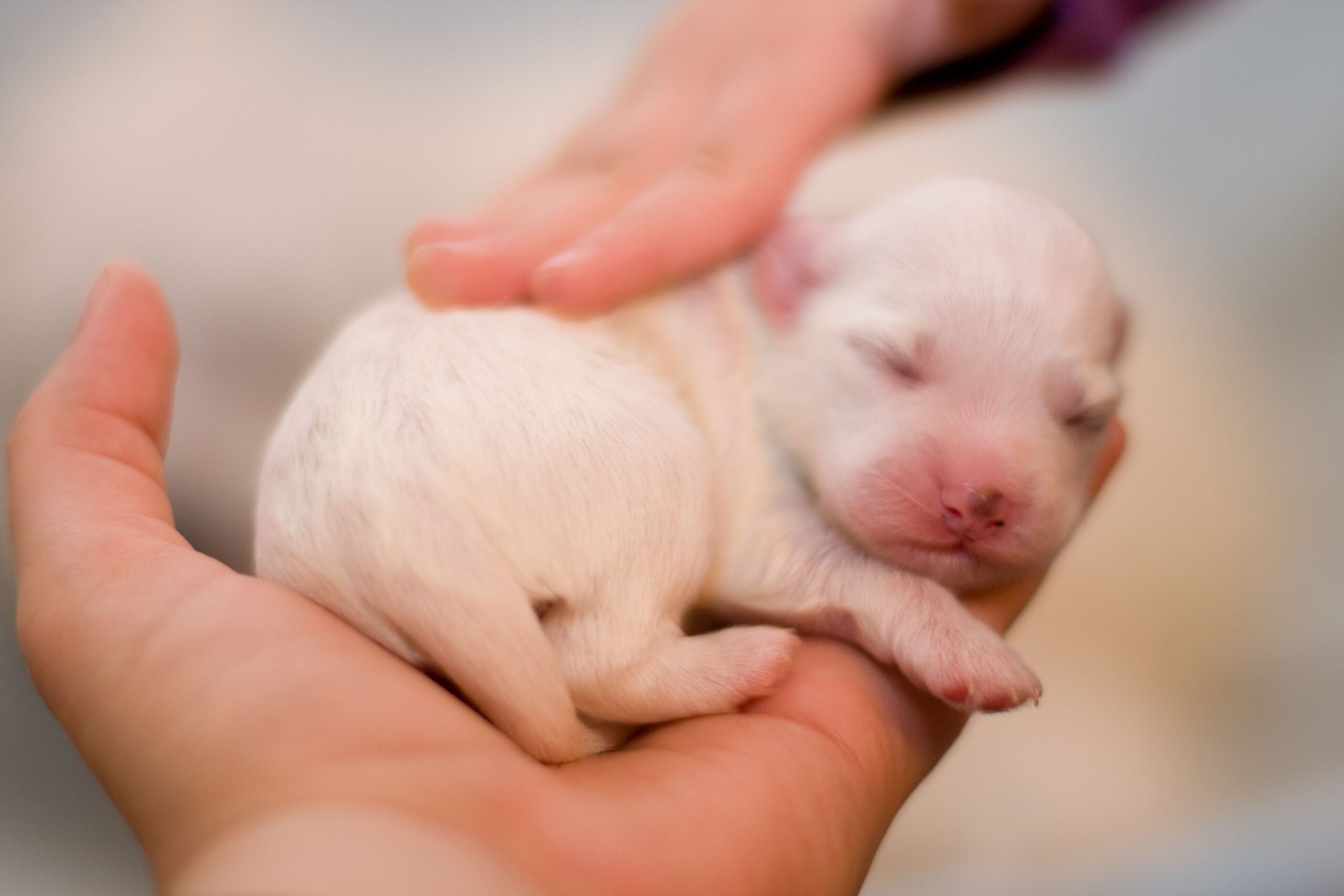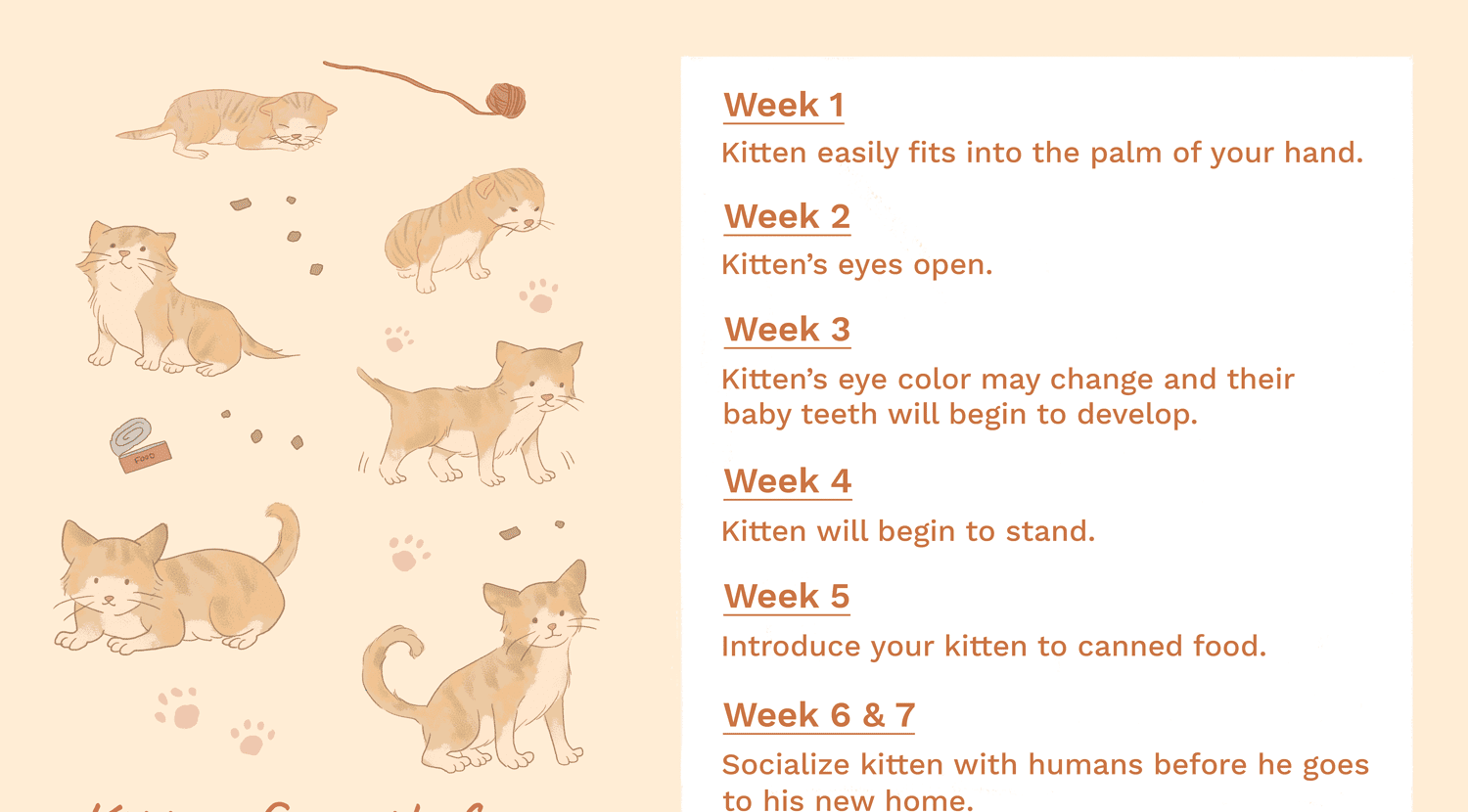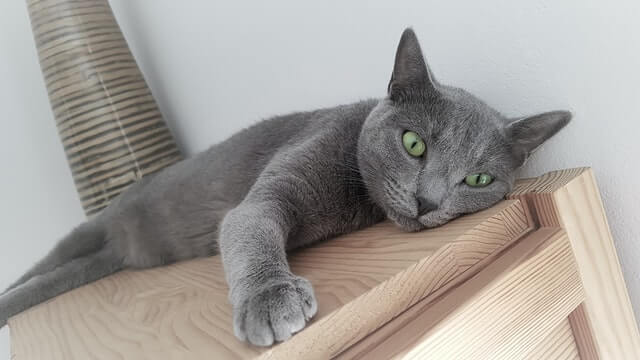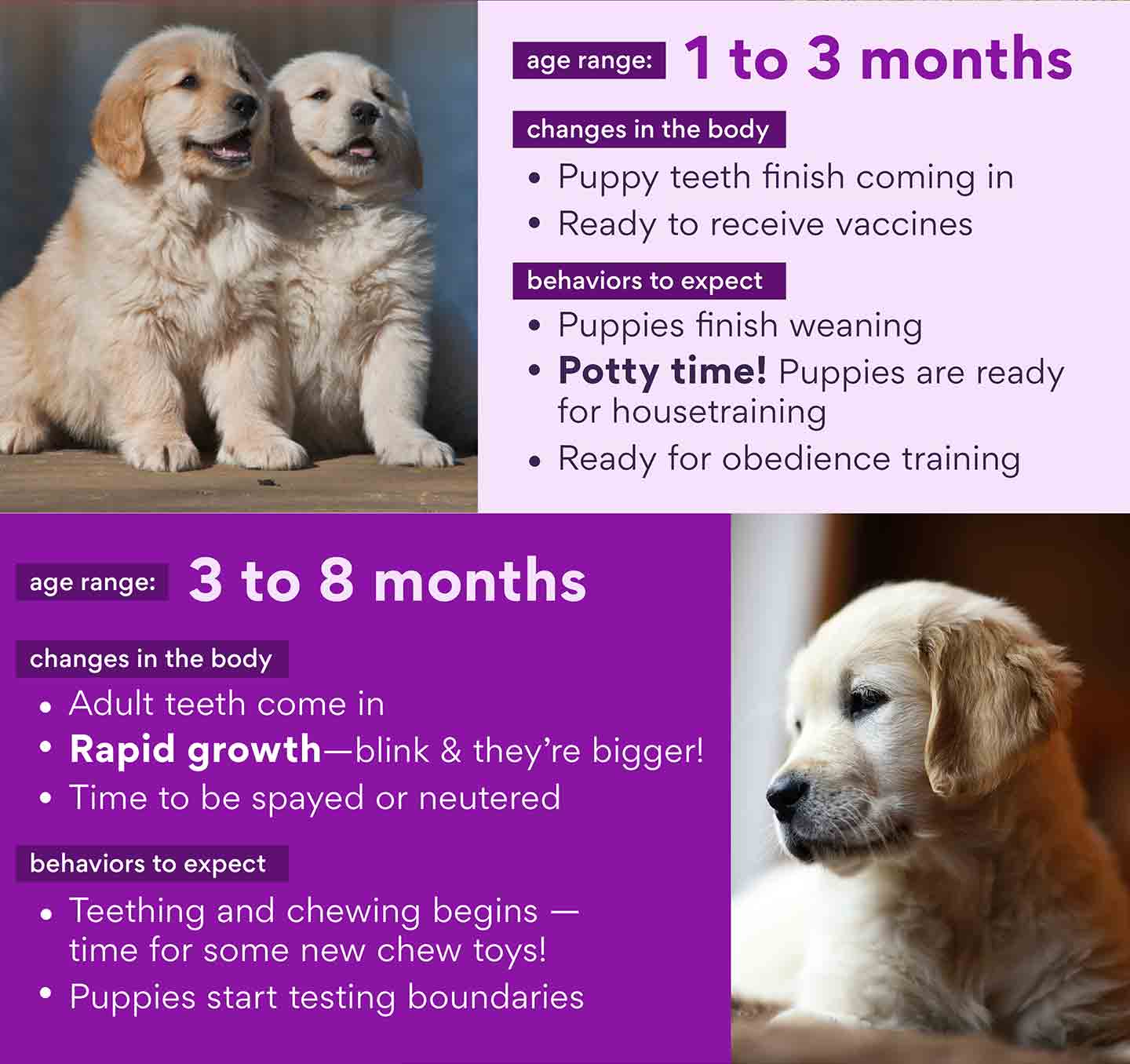In just 8 weeks, puppies undergo significant growth and development. From their first week of life to their eighth, these adorable creatures transform both physically and mentally. Let's explore the fascinating journey of puppy development during this crucial period.
Key Takeaways:
- Puppies go through a rapid period of growth and development during the first 8 weeks of their lives.
- During this time, puppies should be exposed to various stimuli to help them become well-rounded and socialized adults.
- Proper nutrition is crucial for healthy puppy development, with a focus on high-quality puppy food and appropriate portion sizes.
- Puppies should start basic training and socialization from an early age to establish good behaviors and prevent future behavioral issues.
- Veterinary care, including vaccinations and regular check-ups, is essential for monitoring the overall health and well-being of puppies during this critical stage of development.
Key Milestones for Puppies from 1 to 8 Weeks Old
Week 1: The World of Smells and Touch
During the first week of their lives, puppies rely heavily on their sense of smell and touch. Their eyes and ears are still closed, so they can't see or hear much yet. However, they can use their nose to find their mother's milk and warmth. They also love snuggling together with their littermates for comfort.
What you can do:
- Keep the puppies in a warm and quiet environment to help them feel secure.
- Make sure the mother dog has plenty of food and water to produce enough milk for her puppies.
- Avoid handling the puppies too much during this time as they are still fragile.
Week 2: Eyes and Ears Begin to Open
By the second week, puppies start opening their eyes, although their vision is still blurry. Their ears also begin to open up, allowing them to hear some sounds. They become more aware of their surroundings and may start crawling around their whelping box.
What you can do:
- Introduce gentle sounds like soft music or your voice to help them get used to different noises.
- Continue providing a warm and clean environment for the puppies.
- Monitor their weight gain to ensure they are nursing well.
Week 3: First Steps and Socialization
At three weeks old, puppies start taking their first wobbly steps. They become more curious about the world around them and begin exploring outside of their whelping box. This is also an important time for socialization as they learn how to interact with other dogs and humans.
What you can do:
- Start introducing solid food mixed with puppy formula to encourage them to start weaning.
- Begin handling the puppies gently and exposing them to different people and environments to aid in their socialization.
- Provide safe toys for them to play with, stimulating their physical and mental development.
Week 4: Developing Teeth and Playfulness
By the fourth week, puppies' baby teeth start coming in, which can make nursing uncomfortable for the mother dog. They become more playful with each other and start engaging in gentle wrestling matches. Their coordination improves, allowing them to run around more confidently.
What you can do:
- Offer soft puppy food soaked in water or formula to help them transition from nursing.
- Continue socializing the puppies with different experiences, sounds, and people.
- Provide appropriate chew toys to help alleviate discomfort as their teeth come in.
Week 5: Introduction to Basic Training
At five weeks old, puppies are becoming more independent. They have better control over their bladder and bowel movements, making it easier for potty training. This is a good time to introduce basic commands like "sit" and begin crate training.
What you can do:
- Establish a consistent feeding schedule to regulate their bathroom habits.
- Use positive reinforcement techniques such as treats or praise when they follow basic commands.
- Gradually introduce short periods of crate confinement to help them get used to being alone.
Week 6-8: Weaning and Final Socialization
During this period, puppies should be fully weaned from their mother's milk. They continue learning important social skills from interactions with littermates and humans. It's crucial to expose them to various stimuli during this time for optimal brain development.
What you can do:
- Transition the puppies completely onto solid puppy food while gradually reducing formula intake.
- Encourage supervised playtime with other puppies or friendly adult dogs to refine their social skills.
- Provide mental stimulation through puzzle toys and basic training exercises to keep their minds active.
Remember, every puppy develops at its own pace, so be patient and provide a loving and supportive environment as they grow.
How Puppies Develop Their Senses: A Guide for Owners
Puppies are born with their eyes and ears closed, but they quickly begin to develop these senses in the first few weeks of life. By around two weeks old, their eyes start to open, allowing them to see the world around them. However, their vision is still blurry at this stage. It takes several more weeks for their vision to fully develop. During this time, it's important for owners to provide a safe and stimulating environment for their puppies to explore.
In addition to vision, puppies also begin to develop their sense of hearing. At around three weeks old, their ears start to open up, allowing them to hear sounds in their surroundings. This is a crucial time for socialization, as exposing puppies to different sounds can help prevent noise phobias later in life. Owners can play soft music or introduce gentle household noises during this period.
Stimulating Their Senses
To aid in the development of your puppy's senses, you can engage them in various activities that stimulate their sight and hearing. One way is by introducing toys with different textures and colors that they can interact with. You can also play gentle sounds or use squeaky toys to capture their attention and encourage auditory development.
Tips for Owners:
- Create a safe space where your puppy can freely explore without any hazards.
- Introduce new sights and sounds gradually to avoid overwhelming your puppy.
- Engage in interactive play sessions that stimulate their senses.
- Provide a variety of toys with different textures and sounds for them to explore.
The Importance of Socialization for Puppies: What You Need to Know
Socialization is a crucial aspect of a puppy's development. It involves exposing them to various people, animals, and environments to help them become well-adjusted and confident adult dogs. The critical period for socialization is between 3 and 14 weeks of age, during which puppies are most receptive to new experiences.
During this time, it's important for owners to expose their puppies to different situations in a positive and controlled manner. This includes introducing them to other dogs, people of all ages, different environments such as parks or busy streets, and various sounds and sights they may encounter throughout their lives.
Positive Reinforcement
When socializing your puppy, it's essential to use positive reinforcement techniques. Rewarding good behavior with treats or praise helps them associate positive experiences with new situations or individuals. This will build their confidence and make them more comfortable in different environments.
Tips for Owners:
- Start socializing your puppy early on during the critical period.
- Expose them gradually to new experiences, ensuring they feel safe and secure.
- Use positive reinforcement techniques such as treats or praise when they exhibit desired behavior.
- Enroll in puppy socialization classes where they can interact with other puppies under professional supervision.
Puppy Training Basics: Potty Training and Sitting Made Simple
Puppy training is an essential part of raising a well-behaved dog. Two fundamental aspects of training include potty training and teaching basic commands like sitting. Potty training involves teaching your puppy where it is appropriate to relieve themselves, while teaching them to sit helps establish discipline and control.
Potty Training Tips
To successfully potty train your puppy, consistency and positive reinforcement are key. Establish a routine by taking them outside to their designated potty area regularly, especially after meals or naps. When they eliminate in the correct spot, reward them with praise or treats. Accidents may happen, but it's important not to punish your puppy as it can create fear and hinder the training process.
Tips for Potty Training:
- Establish a consistent routine for bathroom breaks.
- Use positive reinforcement such as treats or praise when they eliminate in the correct spot.
- Supervise your puppy closely indoors and redirect them to the designated potty area if needed.
- Clean up accidents with an enzymatic cleaner to remove any lingering scent that may attract them back to the same spot.
Teaching Sit Command
The sit command is one of the first commands you can teach your puppy. It helps establish control and discipline while also providing mental stimulation. To teach your puppy to sit, hold a treat close to their nose and slowly move it upwards above their head. As their head follows the treat, their bottom will naturally lower into a sitting position. Once they are seated, give them the treat and praise them for following the command.
Tips for Teaching Sit Command:
- Use small, easily manageable treats as rewards during training sessions.
- Keep training sessions short (around 5-10 minutes) to maintain your puppy's attention span.
- Be patient and consistent with your commands and rewards.
- Gradually phase out treats as your puppy becomes more proficient in sitting on command.
Nutrition and Your Puppy's Growth: What to Feed Them in the Early Weeks
Proper nutrition is vital for a puppy's growth and development. During the early weeks of their life, puppies require a diet that supports their rapid growth and provides essential nutrients. It's important to choose high-quality puppy food specifically formulated to meet their nutritional needs.
Choosing the Right Puppy Food
When selecting puppy food, look for options that are labeled as "complete and balanced" by reputable brands. These foods are formulated to provide all the necessary nutrients your growing puppy needs. Additionally, opt for food that is appropriate for your puppy's breed size, as small and large breeds have different nutritional requirements.
Tips for Choosing Puppy Food:
- Consult with your veterinarian to determine the best type of food for your specific puppy.
- Read ingredient labels and avoid foods with excessive fillers or artificial additives.
- Follow feeding guidelines provided by the manufacturer based on your puppy's age and weight.
- Monitor your puppy's weight regularly and adjust their portion sizes accordingly.
The Importance of Veterinary Check-ups for Your Growing Puppy
Veterinary check-ups play a crucial role in ensuring the health and well-being of your growing puppy. Regular visits to the veterinarian allow for early detection of any potential health issues or concerns, ensuring prompt treatment and prevention of more serious conditions.
Schedule of Veterinary Check-ups
In general, puppies should have several veterinary check-ups during their first year of life. The exact schedule may vary depending on factors such as breed, size, and overall health. Typically, puppies receive vaccinations at specific intervals to protect them against common diseases. These vaccinations are often administered during routine check-ups.
Tips for Veterinary Check-ups:
- Find a reputable veterinarian who specializes in puppy care.
- Follow the recommended vaccination schedule provided by your veterinarian.
- Discuss any concerns or changes in behavior with your veterinarian during check-ups.
- Ask for advice on parasite prevention and general healthcare for your puppy.
Stimulating Your Puppy's Brain Development: Tips for Owners
Just like physical exercise, mental stimulation is essential for a puppy's overall development. Engaging their brain through various activities helps prevent boredom, promotes learning, and strengthens the bond between you and your puppy.
Mental Stimulation Activities
There are several ways to stimulate your puppy's brain. Puzzle toys that require problem-solving skills can provide hours of entertainment while challenging their cognitive abilities. Teaching them new tricks or commands also keeps their minds active and engaged. Additionally, interactive play sessions and socialization with other dogs can provide mental stimulation through social interaction.
Tips for Mental Stimulation:
- Rotate toys regularly to keep them interesting and prevent boredom.
- Incorporate training sessions into daily routines to challenge their learning abilities.
- Engage in interactive games such as hide-and-seek or treasure hunts using treats or toys.
- Provide opportunities for socialization with other dogs to stimulate their brains through social interaction.
Challenges and Health Concerns in the First 8 Weeks of Your Puppy's Life
The first eight weeks of a puppy's life are crucial for their development, but they also come with potential challenges and health concerns. It's important for owners to be aware of these issues and take appropriate measures to ensure the well-being of their puppies.
Common Challenges and Health Concerns
Some common challenges and health concerns during this period include infectious diseases, parasitic infestations, hypoglycemia (low blood sugar), and fading puppy syndrome. It's crucial to provide a clean and safe environment for your puppies, follow proper vaccination protocols, deworm them regularly, and monitor their overall health closely.
Tips for Overcoming Challenges:
- Consult with your veterinarian to establish a preventive healthcare plan for your puppies.
- Keep the living area clean and sanitized to minimize the risk of infections.
- Monitor their weight regularly to ensure they are growing at a healthy rate.
- If you notice any concerning symptoms or behaviors, seek veterinary attention promptly.
Tips for Creating a Safe and Stimulating Environment for Your Growing Puppy
The environment in which your puppy grows plays a significant role in their overall development. Creating a safe and stimulating environment helps promote physical and mental growth while preventing potential hazards or behavioral issues.
Creating a Safe Environment
Puppy-proofing your home is essential to keep them safe from potential dangers. Remove any toxic plants or substances that they may ingest, secure loose electrical cords, block off areas that could pose risks (such as staircases), and use baby gates if needed. Additionally, provide them with a comfortable crate or designated space where they can retreat when they need rest or alone time.
Tips for Creating a Safe Environment:
- Remove any small objects that could be swallowed or pose choking hazards.
- Secure cabinets or trash cans that contain potentially harmful substances.
- Use pet-friendly cleaning products to avoid accidental ingestion of toxic chemicals.
- Supervise your puppy closely during outdoor playtime to prevent them from wandering off or encountering dangerous situations.
Providing Stimulating Activities
A stimulating environment helps keep your puppy engaged and prevents boredom. Provide a variety of toys with different textures, shapes, and sounds for them to explore. Rotate their toys regularly to maintain their interest. Additionally, take them on regular walks or engage in interactive play sessions to provide physical exercise and mental stimulation.
Tips for Providing Stimulating Activities:
- Engage in daily play sessions that involve interactive toys or games.
- Take your puppy on regular walks to provide mental and physical stimulation.
- Introduce new toys or activities periodically to keep them engaged and prevent boredom.
- Consider enrolling in puppy training classes where they can learn new skills and interact with other puppies.
| Week | Development Milestones |
|---|---|
| 1 | Puppies are born blind, deaf, and unable to regulate their body temperature. They rely on their mother for everything. |
| 2 | Puppies start opening their eyes and ears, and they begin to crawl around. They also develop a sense of smell. |
| 3 | Puppies start walking, wagging their tails, and playing with each other. They begin to transition from milk to solid food. |
| 4 | Puppies start exploring the world around them more confidently. They learn basic socialization skills from interactions with
What happens in the first 8 weeks of a puppy's life?Puppies acquire socialization skills by interacting with their mother and siblings, as well as humans through gentle handling. At around seven to eight weeks old, they enter their first "fear period" where they may display fear towards unfamiliar stimuli. What should 1 week old puppies be doing?In the first week of a puppy's life, their main activities are eating and sleeping in order to grow and develop. This is a busy time for the humans taking care of them, as they may have to stay up at night to make sure the puppies and their mothers have everything they need. Do puppies miss their mom?Puppies form strong bonds with their littermates and mothers, but around 8-10 weeks old, they are also ready to form a bond with their new owner. Because of this developmental stage, there is no need to worry about puppies missing their mothers for an extended period of time. Is the first week with a puppy the hardest?The first week that a puppy spends in its new home is a thrilling time for the family, but it can also be a daunting experience for the puppy. Being separated from its mother and siblings and placed into a unfamiliar environment with strangers can be challenging. What is the fading puppy syndrome?Fading puppy syndrome is a condition where puppies die suddenly and without warning. These puppies are born healthy and normal, but they gradually weaken and die within one to three weeks. Because there is no specific cause of death, it is difficult to determine why these otherwise healthy puppies succumb to fading puppy syndrome. What age can you walk a puppy on a leash?Starting leash training for a puppy is ideal at ten weeks old, but it can be initiated as early as four to six weeks old. At this stage, the puppy should have learned to recognize the need to go outside for urination or defecation. They should also be able to understand when their behavior pleases you.
More Reads
Dr. Clara Bennett
Hello, fellow pet enthusiasts! I'm Dr. Clara Bennett, your go-to expert on all things pets. With a background in veterinary medicine and a passion for nutrition, I've spent years diving deep into the world of cats, dogs, birds, horses, and the products that keep them thriving. From the English countryside, I've witnessed the magic of animals and am here to share my knowledge, ensuring your pets receive the best care. Together, let's master the art of pet care!
All Posts »
Next Steps In Mastering Cat CareNext Steps In Mastering Dog CareJoin Our NewsletterSubscribe to receive our latest updates in your inbox! |



